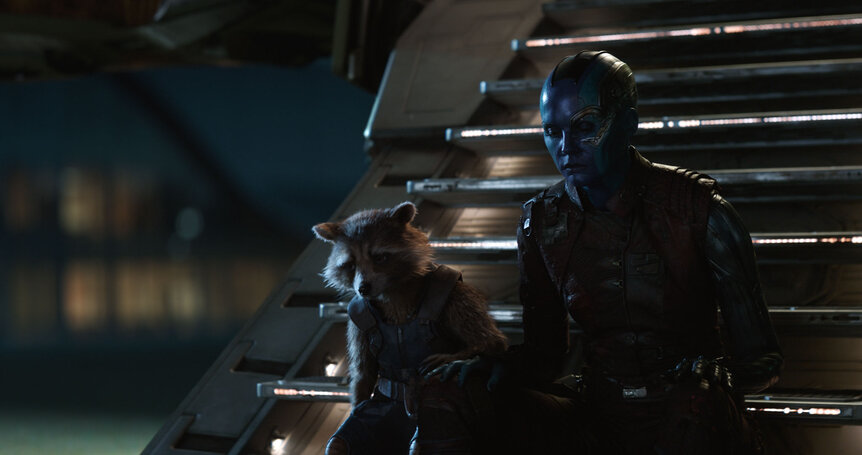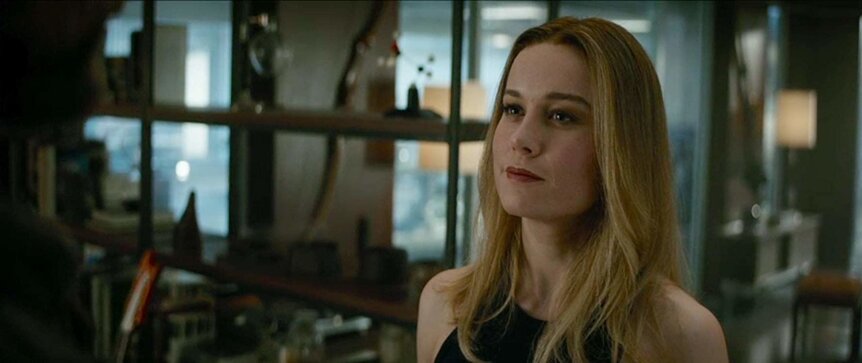Create a free profile to get unlimited access to exclusive videos, sweepstakes, and more!
Marvel movies are kitsch, what's wrong with that?

Over the last decade, the Marvel Cinematic Universe has been a dominating force in cinema. Of course, there have been superhero movies that have come before it, featuring characters borrowed from various other comic book titles and imprints, but no franchise has enjoyed quite so much consistency, star power, or box office prowess than the MCU.
Now, I can understand why some people might be frustrated with the success and popularity of these Marvel movies. Every time one of these films does well, it means more money to Disney, the company taking over the entertainment industry like the Galactic Empire took control of the Republic in Star Wars.
Its most recent acquisition of 20th Century Fox means it has even more franchises under its belt — including X-Men, Fantastic Four, Avatar, Alien, and Predator — which means even more sequels and reboots could be filling up the next decade of release schedules rather than original stories. Then there’s the fact Disney also chose to shut down Fox 2000, the production company and sister studio to Fox that was known for its output of risk-taking titles and award winners. So, again, there are fears that these type of movies won’t see the light of day if the focus is on money-making Marvel ones.
I don’t take issue with that criticism, though I would note there have only been on average two or three MCU movies released per year since the whole franchise started in 2008 with Iron Man. But with the amount of money pumped into these films, it does beg the question of whether some of that financing could be used to fund smaller movies and progressive filmmakers. I would certainly love to see more original films backed by studios instead of constantly reading about reboots and remakes.What I do find eye-rolling is the snobbish attitude directed at the MCU and the people who make or star in the films. There are plenty of filmmakers, actors, and critics who have offered a cynical take when it comes to the quality of the films Marvel Studios has produced — it's possible they have a point about some (ahem, Thor: The Dark World). But really, it harkens back to the days when a certain critic argued that art and culture could only be defined by two labels: avant-garde and kitsch.
In Clement Greenberg’s 1939 essay — named for the two terms cited above — Avante Garde and Kitsch, he notes that “avant-garde culture is the imitation of imitating.” Meaning artists, rather than recreating artwork, strive to recreate the methods by which new art is formed. He gives T.S. Eliot and Braque as examples of avant-garde artists who found “a path along which it would be possible to keep culture moving,” but acknowledged at the same time that a “rear-guard” had formed in contrast:
“Kitsch, using for raw material the debased and academicized simulacra of genuine culture, welcomes and cultivates this insensibility. It is the source of its profits. Kitsch is mechanical and operates by formulas. Kitsch is vicarious experience and faked sensations. Kitsch changes according to style, but remains always the same. Kitsch is the epitome of all that is spurious in the life of our times. Kitsch pretends to demand nothing of its customers except their money — not even their time.”
Greenberg argued that kitsch was for the lower classes and in poor taste compared to the highbrow modern art favored by the elite, and it's easy to see how the criticism can be applied to Marvel movies. The MCU has a distinct formula that, despite different heroes headlining each movie, features fundamentally similar plot structures. The films have mass appeal, so much so that they have made over $8 billion combined, a capitalist dream come true for the businesses that funded it.
The MCU also has proven to be “a source of temptation” to visionary filmmakers known for their work in independent cinema. Taika Waititi and Ryan Coogler both brought their fresh filmmaking style to Thor: Ragnarok and Black Panther, but it hasn’t come without slight modifications in order to fit their approach within the narrower parameters of Marvel Studios and its overarching plan for the universe.It’s no wonder you can hear echoes of Greenberg’s dismissal of kitsch heard today in the criticism of Marvel movies. “None of the 22 films in this cycle are likely to be remembered as great works of cinema,” writes A.O. Scott in his Avengers: Endgame review. “Because none have really tried.”
"Studios making bad content in order to appeal to the masses and shareholders is like fracking — you get the best return right now but you wreck the earth,” Jodie Foster said on the subject of superhero films in 2018. “It's ruining the viewing habits of the American population and then ultimately the rest of the world.”
I have to disagree. In the 80 years since Greenberg wrote his essay, we’ve seen products of kitsch culture be reclaimed as iconic art. Tin Pan Alley and popular music of his era are now considered classics and an important fixture in American cultural history. Even Hollywood movies were once firmly situated in the kitsch camp, though there is barely a film critic in the world who would argue against calling Citizen Kane or Raging Bull great works of art.
This is not to say that Marvel movies are on that level of cinematic brilliance, but in terms of blockbuster filmmaking they have pushed the genre forward. Inspired by the cross-narratives of the comic book source material, Kevin Feige, Louis D'Espocito, Victoria Alonso, and the filmmakers have created an expansive way of storytelling that goes beyond a two-hour movie. We’ve witnessed other such studios try and imitate this narrative web with their own franchises, like Warner Bros.’ DCEU and Fox’s X-Men, but fail to hit the same notes.Even celebrated indie filmmakers can recognize the effort the Russo brothers put into the making of their Marvel movies. “The Russo Bros are so fundamentally sound in the way they communicate spatial relationships between characters during set-pieces,” Moonlight director Barry Jenkins tweeted. “It’s what truly separates their work on this scale from most others’. It’s truly jaw-dropping how grounded the audience is at all time.”
So while I do believe that art is subjective and everyone has a right to express their likes or dislikes, I think it’s premature to reduce the contribution the MCU has made to cinema. Yes, it’s kitschy and appeals to the masses, but in this day and age is there anything especially wrong with such a unifying art form? And who knows, in a few decades' time we might be looking at these superhero movies in the same way we looked at musicals and westerns of the Golden Age of Hollywood — an integral part of our collective enjoyment and appreciation of cinematic history.
Contemporary culture could not exist without kitsch — how would one know what is avant-garde without it? But these labels don't have to be as polarizing as they were 80 years ago. Surely it's time to move on from these claustrophobic distinctions and embrace every aspect of culture, whether it's avant-garde or kitsch, highbrow or lowbrow, Marvel or Malick.
If not, well, maybe you're the one with bad taste.
The views and opinions expressed in this article are the author's, and do not necessarily reflect those of SYFY WIRE, SYFY, or NBC Universal.




























